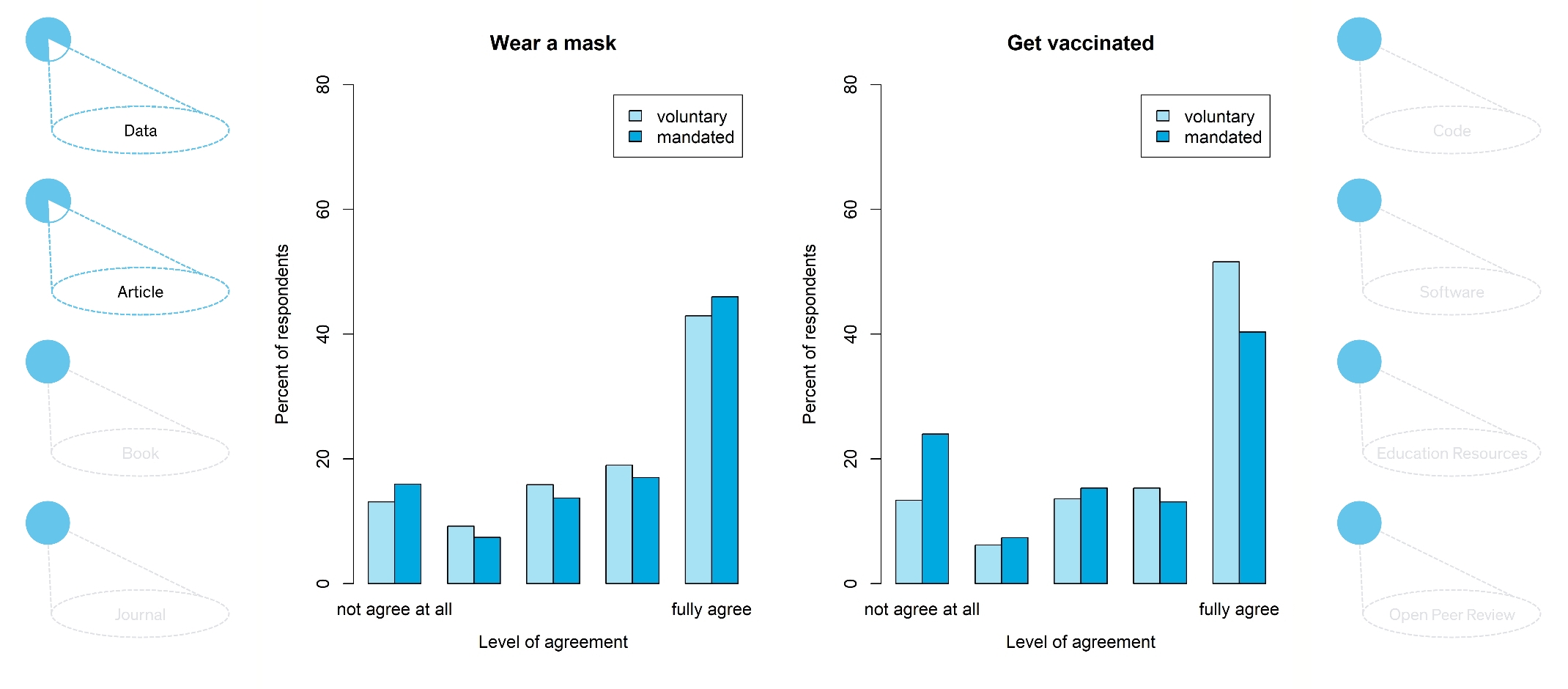COVID-19 and social inequality

During the first COVID-19 lockdown in April/May 2020, researchers from the University of Konstanz began a survey programme in which a total of 4,799 people have taken part. The "COVID-19 and social inequality" dataset which provided the basis for several high-profile academic publications has since been made freely available in anonymized form for anyone interested in examining the data.
One of the studies based on the dataset was conducted by Konstanz economist Katrin Schmelz and has been published as an open access article in the journal PNAS. The study examines the reactions of Germans to voluntary versus compulsory measures to slow the spread of the coronovirus. Making some measures compulsory can be useful and important (e.g. as in the case of face masks). However, mandating other measures (such as vaccination) can actually undermine personal motivation and generate resistance to such measures.
"COVID-19 and Social Inequality" is an anonymized research dataset (doi: 10.7802/2116) that provides the basis for several publications by the interdisciplinary Cluster of Excellence "The Politics of Inequality" at the University of Konstanz. The dataset and corresponding code book are freely available in the SowiDataNet|datorium.
The open access article in PNAS (doi: 10.1073/pnas.2016385118) is available for free download on the Konstanz Online Publication System (KOPS). The replication dataset for the article (doi: 10.7802/2124) can be downloaded from gesis.

